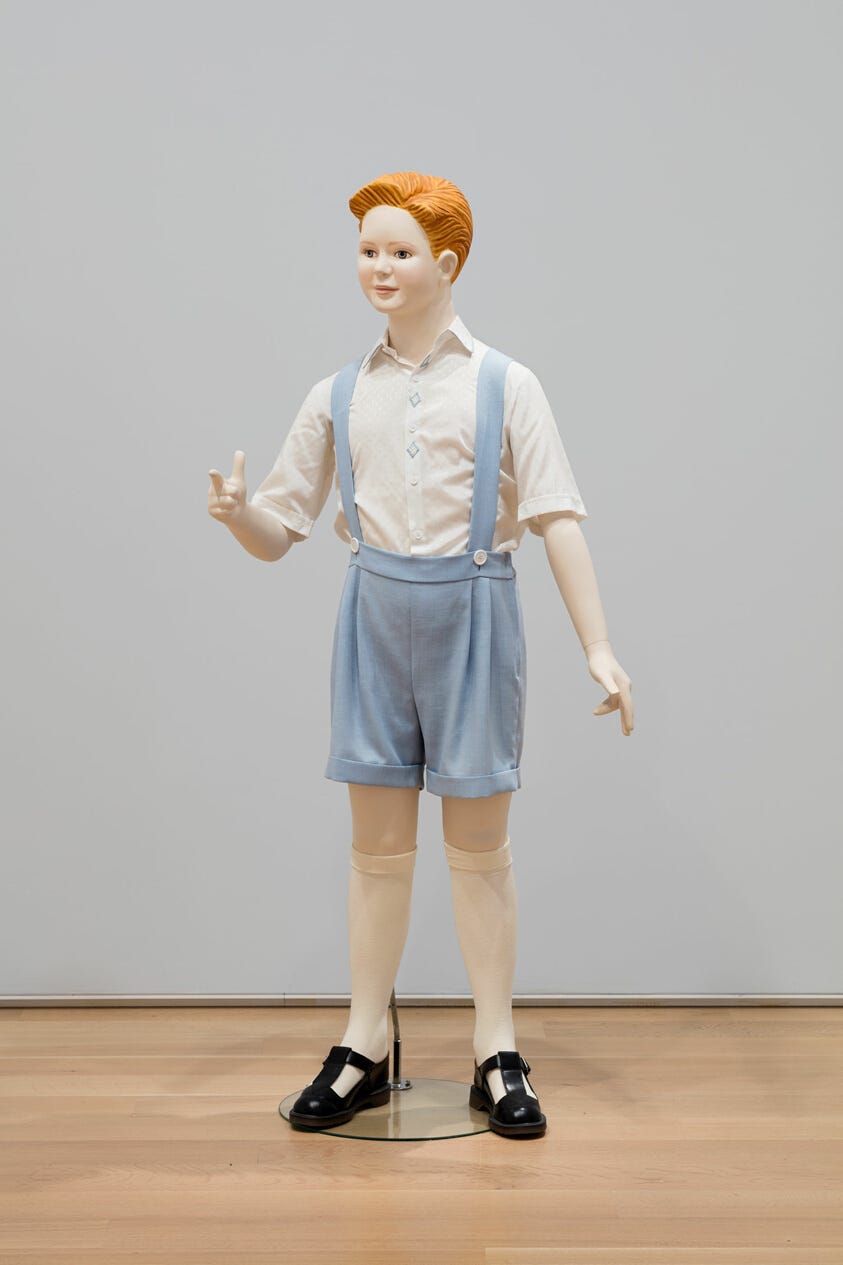
This reissue of an English novel from the late 60s that has been long out of print comes to us from Boiler House press. It’s part of their “Recovered Books” line. They can use more support to rescue neglected classics, so your host will be happy if this letter helps ‘em move some stock.
Quarry was the first novel by Jane White, who was born in Cambridge in 1934 and moved into Surrey, where she raised a family. You can't imagine a more demure English housewife in her photographs: a firm expression, pearl earrings; a little like Katherine Hepburn. She worked for BBC media, studied English literature, and avidly read contemporary crime fiction as well as modernist novels.
The book is tightly written, low-key grotesque, and while it was well-received in its day I bet modern tastes will go for the enigmatic Twilight Zone puzzle element. As we’ll see, it’s comparable to Lord of the Flies. But maybe this narrative is in fact closer to what the popular consciousness takes Golding’s novel to mean (I know that’s a lot to parse.)
Quarry is the product of a dark imagination. It presents a vision of internal decay and decadence for British society (it was 1967 after all).
Todd said,
'You are coming with us. If you don't want to, and if you try to fight or run away, we shall knock you out and carry you.' The threat, uttered in a voice tentative with nervousness, was incongruous. But he was too intent to notice it. 'Are you coming?'
Behind him, Randy said,
'Better knock him out anyway. He looks as if he could run if he tried.' For some reason he was breathing faster. He moved forward, nearer to the boy. 'We'd better knock him out.'
Todd put out a hand as if to ward him off — a gesture at once protective and angry. The boy looked up at them and said,
'I'll come.'
And so this odd dynamic is established. The boy — the only way we'll know him — shows himself into his own prison in the quarry, while the three tormentors bring food, supplies, a spade for going to the bathroom.
Obvious precedent: William Golding's Lord of the Flies (1954).
But Quarry is both more downbeat and possibly richer than Golding's novel. There's no discovery of evil by youth; it's latent in the hearts and minds of middle class adolescents. There are no circumstances as extraordinary as a plane crash during wartime: Todd, Randy, and Carter are concerned with exams and wondering when the hot weather will finally break.
The novel's most disturbing effect came from the pacing. Over several days, we follow the three tormentors in their every day schedules and life events that take place between their visits to the quarry. Todd comes home to Clare, his lonely and emotionally incestuous mother. Carter returns to his large family at the "bottom of the hill" of this English coastal suburb. Randy is estranged from his guardians on both emotional and religious grounds.
And there's the boy. Why does he go through this process, not only with equanimity, but with even a kind of mischievousness, as if he knows something the tormentors don't? Every so often the narrator notes a "flicker" of contempt or something else in the boy's eyes.
Perhaps he is a child of Never-land. He never grows up while still experiencing life: it's like being innocent and an adult all at once.
The boy reminded me of something else, a piece of sculpture by Charles Ray called Boy (1992). This child, rendered in the proportions of a full-grown man, with his dopey suspenders, disturbs me in the same was as the boy in White's novel does. And look at his shoes! There's a fusion of literary/theological symbolism (dying for our sins, etc.) as well as the uncanny and the psychological.
The boy in Quarry may be the adolescents’ prey and a prisoner of the quarry (playing off both the French [hunting] and Latin [extraction pit] meanings of the English word), but he seems to know precisely how to undermine our anti-heroes, and waits patiently for the moment.
But the ending is even more horrible than what this element suggests. In retrospect, Quarry seems to be leaving Golding behind, and looks forward to Burgess’s Clockwork Orange (1962). These youth problem narratives range Britain’s decline as an imperialist power that accelerated after WW2 — basically the process our American society has been undergoing since the 70s.
The next letter will be a two-fer review notice: we’re sticking to 2023, but with contemporary American authors.


